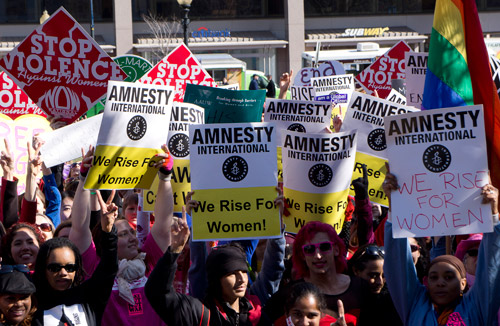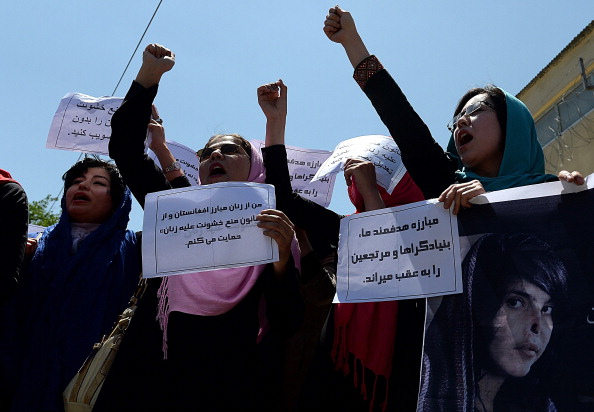
The International Violence Against Women Act introduced yesterday in the Senate would make legislation ending violence against women a diplomatic and foreign assistance priority for the U.S. government (Photo Credit: Sarah K. Eddy).
The eyes of the world are currently focused on Nigeria and the efforts to free the nearly 300 schoolgirls currently held captive by Boko Haram. The abduction of these girls is yet another deeply disturbing example of the ways in which violence against girls and women affects every aspect of their lives, in this case, their right to education.
Even as we work to #BringBackOurGirls in Nigeria, we continue to press for a permanent solution to end violence against women and girls globally.
Yesterday, the U.S. Senate took an action that would help.

